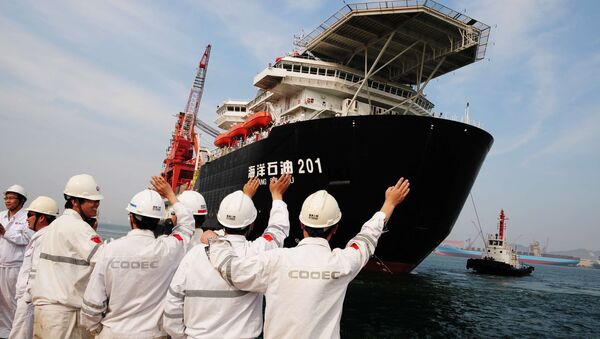The senior analyst at the Skolkovo Business School and Energy Center, Artyom Malov, said that China is the main supplier of oil to Korean refineries.
"China will be most impacted by the embargo, as it is the main supplier of oil to Korean refineries," Malov said.
He also noted that it is possible that the existing close economic ties with the DPRK will not allow Beijing to introduce a full embargo, and it will end with just some restrictive measures.
Earlier, a Japanese politician currently serving as the chief cabinet secretary, Yoshihide Suga, said that the DPRK receives oil products from China and Russia.
He noted that this has some influence on the measures taken by the world community regarding the DPRK. He further stressed that Japan, as a sign of intensification of pressure on North Korea, is considering options to regulate the supply of crude oil and petroleum products to the country.
The UN Security Council on August 5 unanimously adopted a resolution that toughens sanctions against the DPRK. The resolution provides a ban on imports from the DPRK, in particular, iron, iron ore, lead, coal and seafood.
Furthermore, the accounts of the DPRK Foreign Trade Bank will be frozen, and North Korean sea vessels violating the UN resolutions will be prohibited from entering ports worldwide.
Tensions in Southeast Asia escalated in recent weeks after North Korea conducted several nuclear tests. The most recent one occurred last Sunday, when North Korea announced that it had successfully tested a hydrogen bomb that could be loaded onto an intercontinental ballistic missile.
Pyongyang's announcement was aired by the South Korean YTN and Japanese NHK broadcasters.
The estimated capacity of North Korea's possible nuclear test may have reached 50 kilotons, South Korean media reported on Sunday.
North Korea claimed that no radiation leakage occurred during the conducted test.




